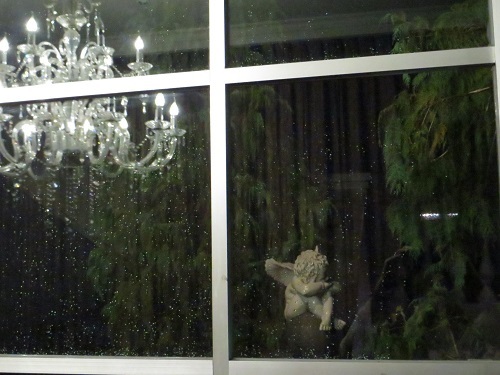How can we change our mindset from short- to long-term?, was a question asked by my colleague Angus Yip, who teaches at Hong Kong University SPACE. Angus is facing the challenges of Chinese business executives that feel the pressure to meet short term targets, to show growth and profits. His question is so real. Who is exempt from this pressure?
My thought is that this is not new, particularly in the West we have been fighting the short-term pressures for many years now. The crazy 90-day cycle which is the result of returning value to shareholders every quarter makes a mockery of long-term planning.
Yet as we hear it over and over in the 'sustainability' circles, it is not an either/or challenge. We cannot forget the short-term, or we won't make the long-term. But if we are not careful how we decide in the present, we won't make the long-term either. In addition, the long-term is getting shorter. This is not because life goes faster, as we hear all the time (or is it?), but because some effects of our behaviors that used to be 'distant' are becoming very visible, sooner.
Back in the 1990s, Peter Senge in his book The Fifth Discipline, shared a story about batteries. When we touch something hot, we immediately get feedback to take our hands away from the object. When we throw a used battery away, nothing explodes, nothing melts, we may not even hear a noise. Yet as the website of EPA warns, batteries contain heavy metals such as mercury, lead, cadmium, and nickel, which can contaminate the environment when batteries are improperly disposed of. When incinerated, certain metals might be released into the air or can concentrate in the ash produced by the combustion process. Or think of the 12,000 tons of radioactive waste that the world's nuclear reactors produce every year. This waste, according to environment activist and author Joanna Macy, contains Iodine-129, with a half-life of more than 15 million years, Plutonium-239, which decays into Uranium-235, with a half-life of 700 million year, and Neptunium- 237, with a half-life of more than 2 million years. The mutagenic impact on the genetic pool is a problem we are exporting to the future, and is directly impacting the generations to come, human and of life in all manifestations. To understand the interconnected impacts of our daily decisions in the future requires understanding the systemic interconnections.
I recall back in 2010 I was pondering how best to teach to students the concept of systemic interconnections. Then Iceland's volcano erupted, spreading ash for miles into the air and shutting down airline traffic around Europe for six days. As people that we had to meet were stranded, meetings cancelled, operations postponed -- we got an experiential lesson in systemic interconnections. I called it Systems 101, and we all learned more during that week than I could have possibly transmitted in seven days of teaching.
Days of haze in Kuala Lumpur are directly connected to the burning of rain forests in Indonesia. Increasing traffic congestion in Mexico City is connected to car sales promotions that offer "the second car with a license plate that allows you to drive every day" (since local regulations, in an attempt to curb travel and gas consumption, permit alternate days' travel based on whether license plates end in an odd or an even number). Urban unemployment gets connected to farmers migrating to cities, because they are unable to compete with corporate agribusiness. Through the news, we are taught day after day how what we see as a problem, is actually a result of a previous 'solution' and perhaps the cause of a further challenge. This may not make our life easier, yet not seeing the interconnections doesn't make them disappear.
At a session of Sustainability Stewards, organized by Broward County, Florida, participants of different municipalities gathered to share their initiatives about responsible landscaping, sustainable irrigation, urban canopy development, solar energy initiatives, and community gardens. None of these projects were quick fixes; all of them had started time ago, and required the valuable experience of trial and error, where lessons were learned as professionals sought innovative solutions. But what all the initiatives had in common, was that they were drafted with the long term in mind. "Why don't people act in more sustainable ways?" a participant asked. "The information is all out there... who doesn't know about climate change?" "I believe that changing habits is not that easy", one person suggested. Certainly so, but more importantly, the motivation to change a habit has to be more intense and more rewarding than the comfort of maintaining the status quo.
Perhaps we all could keep two questions floating in our minds as the voices of a little personal Zen Master, as we ponder our daily decisions.
"How will I be contributing to our (future?) problems with my decision?"
And "What is the world I want to live in, and how can I shape it with my decision?"
